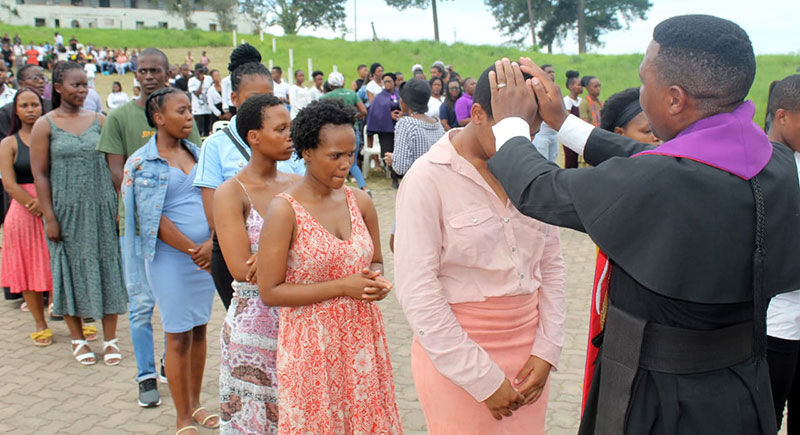
This year’s Ntshongweni Pilgrimage
In 1938, Missionary priest, Father Wagner, built a church at Ntshongweni. This was one of the 15 outstations established by father Pfister OMI in 1934, which he visited on horseback as the only means of transport in and around the Valley of a Thousand Hills.
The building material came by rail to Ntshongweni station, and local people helped to carry it either on their heads or by sledge to the top of the hill where the Mission stands. At the same time Father Wagner opened a primary school.
In 1939 Fr Wagner was called to France to fight in the Second World War. During that period of conflict when there seemed to be no possibility of surviving, he made a promise to Mother Mary that if his life was spared and he came back to South Africa, he would do something as a sign of thanksgiving to Our Lady.
Thankfully, Father Wagner, (who was known to his congregation as Father Ntshebe (the beard) did return to Ntshongweni and continued his work there. Along with establishing a boarding school for children who lived a long distance away, Father Wagner also constructed a dirt road connecting the Mission with two nearby towns. This was done with the help of a group of local Catholic women. At this point, transport was replaced by a motorbike, and later in 1950 by a jeep given by his superiors.
True to his word, father Wagner started a pilgrimage to Ntshongweni as a fulfilment of his vow to Mary during the war. And people came from far and wide, many on foot. Conditions were very basic. Light was produced from a car battery, and water was fetched from the river by the children and other volunteers.
In 1964 Father Wagner took ill with cancer but continued with his Missionary work until 1970 when he died.
All these years later, Father Wagner’s achievements at Ntshongweni live on after him, including the annual pilgrimage on 18 March.
As part of this important occasion, special prayers were said for you, in thanksgiving for your support of all the Zulu Missions, including Ntshongweni.

